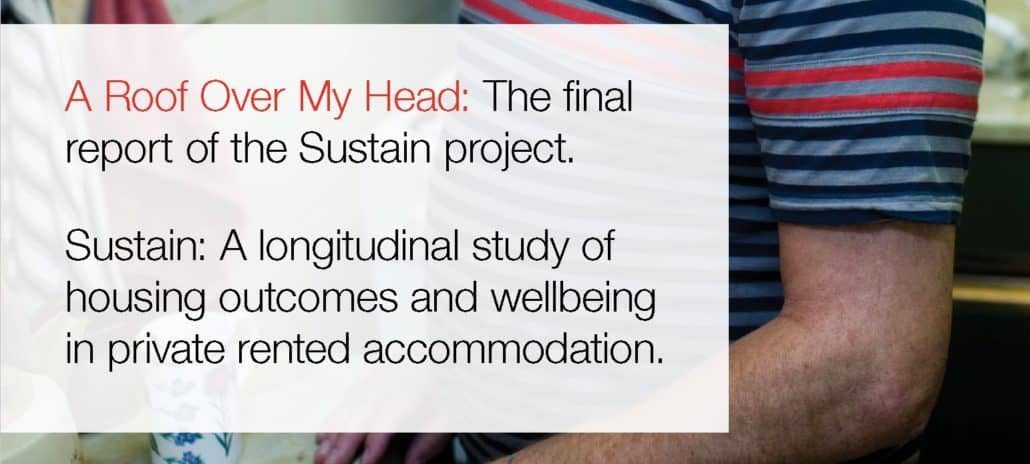SUMMARY OF RESEARCH
One of the best and only longitudinal studies that illustrates the impact of good furnishing support services through a furniture bank.
There are now 3.8 million households in the UK living in the private rented sector (PRS), a number which has nearly doubled in the past ten years. The PRS is increasingly being used by local authorities and agencies to house homeless people but the ending of a private tenancy is now the leading cause of statutory homelessness. In this context there are questions about the sector’s ability to accommodate the needs of homeless people, especially because little is known about people’s experiences once they move into PRS accommodation.
This study set out to explore this evidence gap, by spending 19 months tracking the experiences and well being of 128 people who had been rehoused in the PRS following a period of homelessness.
While the study is specifically about the experiences of previously homeless people, it has uncovered issues in the PRS that will be relevant to anybody living in it. We have found that the PRS has a profound impact on wellbeing.
The Danger of One Off Costs
Household costs which were also difficult to manage were one-off costs, such as providing furniture or repairs, which the household had least control over. They heavily impacted otherwise precise calculations for budgets and put pressure on finances. Furnishing homes was the first major, significant one-off cost that households had to negotiate. Many people didn’t have furniture as they had been homeless households. As a result, many households started their tenancies ‘from scratch’ with little more than a couple of suitcases or changes of clothes. They didn’t have furniture, bedding or kitchen utensils.
As a result of moving into new tenancies they found it very difficult to finance provisions for their new homes. To do this they took out loans, for example using Crisis Loans, or leased furniture. Families and friends might also help by paying for small items. Other ways of attempting to meet household needs were buying only one bed and bed-sharing, furnishing one room only or repurposing items. Tactics also included shopping in £1 stores, charity shops, looking in skips, or reusing other household items.
As time progressed people did start to provision their houses, mostly by taking out loans, but some still found it difficult to meet these costs. By month 19 some households still did not have beds for everybody in the household and lacked basic furniture:
Participant: There’s no bed in his room. I still manage with my son on the same bed.
Interviewer So he shares your bed with you?
Participant: Yeah.
Interviewer: OK.
Participant: And then there’s no, you know, chest of drawers, things like that.
Interviewer: And do you think you’ll be able to get a bed for your son?
Participant: I don’t know how soon I could do that. I don’t know how soon I can get that, so…
Lack of furniture also impacted the household’s practical arrangements:
Interviewer: OK. And where does your son do his homework?
Participant: I have a vacuum– the empty box. That’s where I put the box down and I put the paper on it, and then he sits there and writes.
As a result of moving into new tenancies they found it very difficult to finance provisions for their new homes. To do this they took out loans, for example using Crisis Loans, or leased furniture.
A Roof Over My Head (2014) Tweet
Perhaps unsurprisingly, many felt the situation was unsatisfactory as well as unsustainable. One-off costs also included repair call-out charges (mostly charged by letting agents), or the repair or replacement of white goods, such as cookers and fridges, which landlords would not take responsibility for. Most people felt they should have some money set aside for these costs, but not many were able to save the money required: ‘At the moment I’m not in the position to save any money because I’m robbing Peter to pay Paul at the best of times…’
Some were also anxious that they did not have contents insurance in case of emergency because they simply could not afford it.
‘At the moment I’m not in the position to save any money because I’m robbing Peter to pay Paul at the best of times…’
Study Participant - A Roof Over My Head (2014) Tweet






